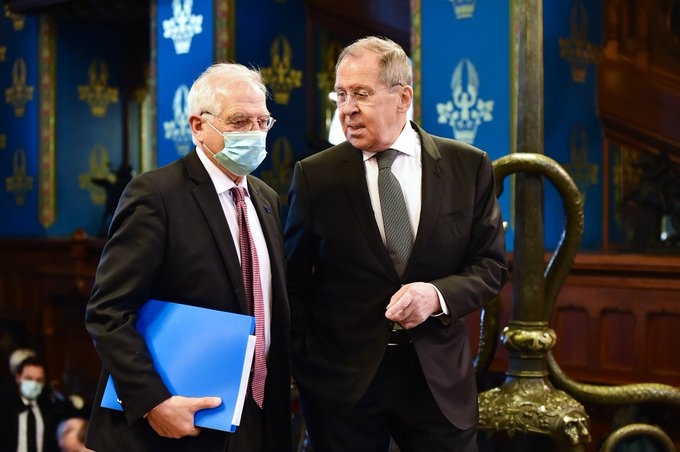Relations between Russia and the European Union (EU) are at the “lowest possible level and a renewed partnership allowing for closer cooperation is a distant prospect”, said Josep Borrell, the bloc’s High Representative for Foreign Affairs and Security Policy.
Addressing a news conference on Wednesday, he said that while Russia remains the EU’s largest neighbour and an important global actor, the “deliberate policy choices and aggressive actions of the Russian government over the last years have created a negative spiral” in relations,.
Advertisement
A further downturn of the relations, which are already “at the lowest level,” is “the most likely outlook for the time being”, he added.
“Our ambition should be to explore paths that could help change the current dynamics gradually into a more predictable and stable relationship.
“The EU will simultaneously push back, constrain and engage with Russia, based on a strong common understanding of Russia’s aims and an approach of principled pragmatism.”- Josep Borrell
To further its own interests, the bloc should engage Russia on several key challenges and the Covid-19 pandemic has shown the common interest for constructive engagement in public health, the EU said in a joint communication endorsed on Wednesday.
“This is a framework of action. It depends on the political will to implement it but it would be very good if we could have the unanimous support of the EU council, the European institutions and the member states,” Borrell added.
EU-Russia relations have reached a new low level after the 27-state bloc sanctioned Moscow over the arrest of Alexei Navalny, the jailed Kremlin critic.
Moscow hit back, saying the case with Navalny is a purely domestic affair and foreign intervention is not allowed.
“We will not leave unfriendly moves, including attempts to talk from a position of strength and interference in internal affairs, without a response,” Foreign Minister Sergei Lavrov said at the opening of a conference on Russian-EU relations in Moscow in May.
At that conference, Lavrov criticised the EU for preferring “ungrounded accusations” to “fact-based dialogue”.
Nevertheless, he noted that Russia is interested in conversations with the EU.
“We have repeatedly said that we are open for constructive cooperation with the EU that would be based on the principles of equality and mutual respect,” Lavrov said.











